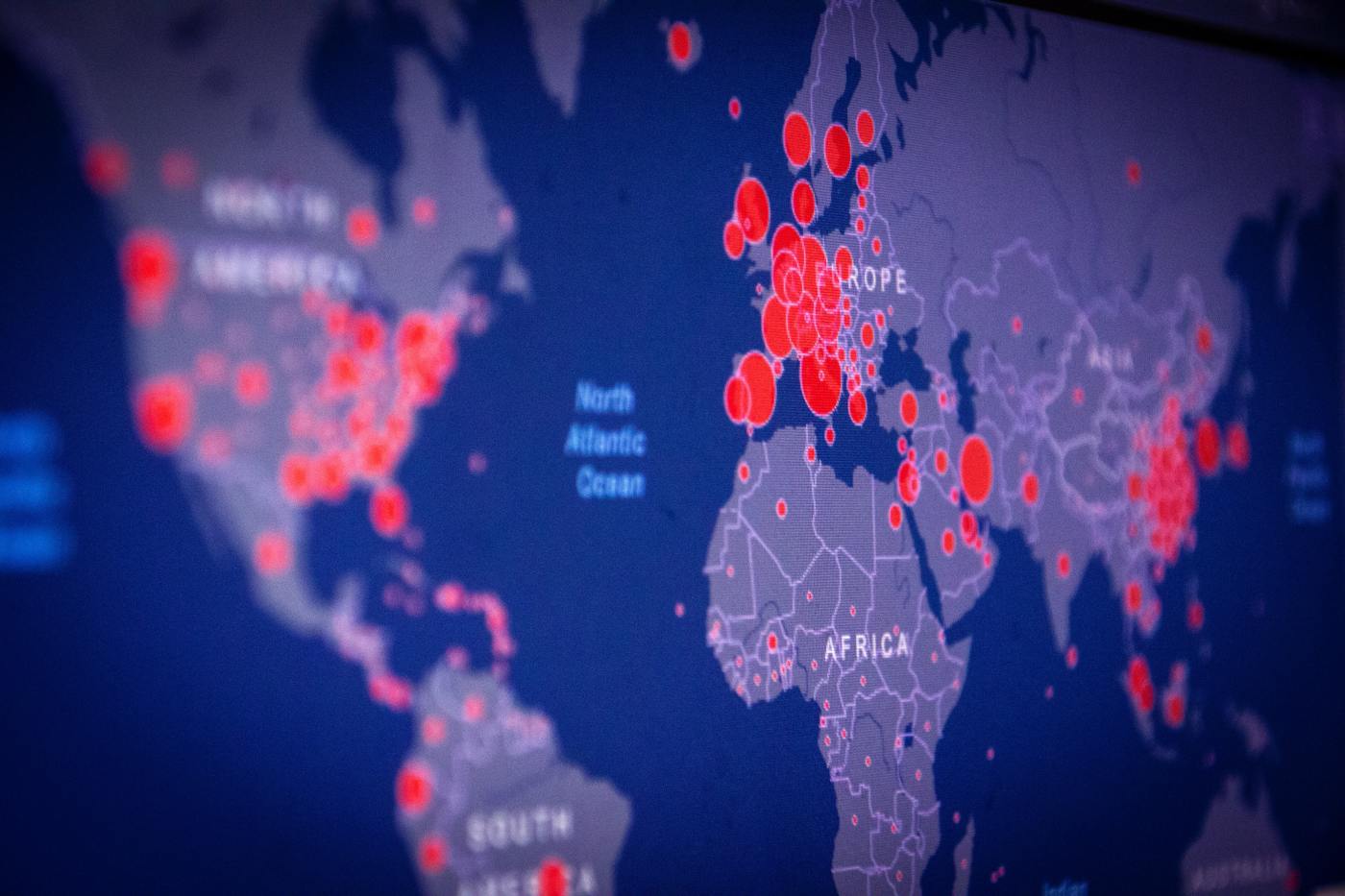It’s been almost three months since the first COVID-19 outbreak. Our planet has been locked down like never before. Notwithstanding this disastrous pandemic, COVID-19 has provided us the opportunity to introspect and rediscover our humanity. What will happen after the pandemic recedes? Will we go back to business as usual? While the final word on COVID-19 has not yet been written, these recent months have been an eye opener in more ways than one. Here are ten lessons to be learnt from COVID-19:
1: Humans are wired to connect
COVID-19 has affected every country on the planet and is agnostic to nationality, religion, class and gender. With a few exceptions, it has united the whole world to fight a common threat but did it have to be a microorganism to do so? Actually, advances in neuroscience confirm that our brains are wired to connect and COVID-19 may just be the initiation of a trans-global transformation opportunity.

COVID-19 Unites the World Pic credit Al Jazeera
2: We cannot take Mother Nature for granted
Back in 2005, James Lovelock, eminent earth scientist, had written the book Revenge of Gaia on why the earth is fighting back and how we can save humanity. Now, leading environmentalists including Inger Andersen, Chief of UN’s environment program are saying that it is mostly human behavior behind the transmission of animal diseases to humans and that both global warming and the destruction of our natural habitat have to cease. Whilst this is not conclusive, there is significant evidence that the wildlife trade is linked to the Corona virus outbreak
Why the disease first appeared in China, Vox on YouTube
3: Globalization is a double edged sword
In 1980 when CNN made its debut it did so with the vision of creating a global village. This is precisely what has happened. Never before have we been so globally integrated and although it undoubtedly has its advantages, its sheer scale and speed has uprooted local communities. In the case of COVID-19, globalization played centre-stage in the spread of the pandemic with every single country reporting positive cases. Now, with just about every remote corner of the world easily accessible, it’s hardly surprising that the virus from Wuhan, China crossed borders like wild fire. The new normal needs to reflect a considered balance of global and local never mind if it impacts global trade.

Newsweek Cover June 18, 1990
4: One country should not be the manufacturing hub for the world
Since the 1990s, pretty much the whole world has looked to China for its manufacturing needs. The Wuhan outbreak has shaken the very foundations of the global supply chain and economies are in a downward spiral. Most risk management functions of global corporations ignore outliers in the supply chain. Corporations are driven by bottom line but a few also think about triple bottom line. Now, is the right time, to bring planet and people oriented goals in sync with profit making.

Lopsided Global Manufacturing Strength is a major risk Pic Credit: Statista.com
5: Recession may not be a bad thing
Mindless economic growth and growth for growth’s sake has left our planet bleeding. Since COVID-19 struck, air quality indices have improved dramatically; skies have become bluer and nature is celebrating while humanity is all caged up. Here is an opportunity for the economists of the world to take a crash course in ecology and rediscover economics the way E F Schumacher presented in his seminal book Small is Beautiful, the study of economics as if people and planet matter. Although, we cannot ignore the disastrous economic repercussions of COVID-19, slower economic growth may be desirable if it helps heal our planet. Now on we must think ‘Planet First’.

How far can we go? Back in the early 70’s, a team of researchers from MIT published The Limits to Growth, a study on the implications of economic growth and how humanity could live within its means and create a society in which future generations could live indefinitely on earth.
6: The separation of public health and environment policy must be done away
Most public health policy discussions debate the access, affordability and sustainability of healthcare. These discussions often extend to diagnostics and therapeutic capabilities to ensure public health. Very few public health policy forums assume a multi-disciplinary approach and draw linkages with environment policy. Says Inger Andersen, the UN’s environment chief “Never before have so many opportunities existed for pathogens to pass from wild and domestic animals to people,” adding that 75% of all emerging infectious diseases come from wildlife.” When one looks at the real causes of COVID-19, it becomes apparent that public health policy makers have overlooked the relationship between environmental health and public health.

There are linkages between the economy, climate change and public health Pic Credit: Cristina Daura, New York Times
7: The world will learn to work remotely
During COVID-19, many work places that considered working from home as inconceivable had no choice but to have staff work from home. An article in the Guardian predicts COVID-19 could cause permanent shift towards homeworking. Many employers will stand to realise the advantages of working remotely. Remote working and reduced travel can in net terms lower the carbon footprint of the planet.

Working from home during the Pandemic Pic Credit: Uxplanet.org
8: Citizen Diplomacy needs to be enhanced
One of the rather unfortunate happenings in the aftermath of the breakout was the war of rhetoric between the leaders of the U.S. and China. On one hand we saw arrogance and racial insensitivity while on the other hand we witnessed behavior that was so short on accountability, accompanied by opaqueness. Clearly it is in times like these when Governments behave irresponsibly, Citizen Diplomacy or people to people contact can smoothen ruffled feathers. COVID-19 has brought citizens together not just across borders but also within communities.

We are all in this together Pic Credit: tweenrandall.com
9: Is being vegan or vegetarian the sensible option?
Wuhan is witness to wet markets which need to be banned outright but Wuhan is not alone, for example, in many parts of the Middle East and Saharan Africa, people relish camel meat. Dr. Andy Weil, noted Integrative Medicine expert writes “many meat eaters are simply not aware of the impact of their protein choices on the environment.” According to Food and Agricultural Organization (FAO) of the UN, almost 15% of the world’s greenhouse gas emissions is attributed to cattle, pigs and poultry farming, in that order.

Your food choices can help you decide what’s good for you and the planet Pic Credit, Pinterest
10: It pays to be joyful for it only enhances your immunity
For some, the confinement brought about by Covid-19 lockdowns was a source of misery but for others it was a chance to look inwards, contemplate and get to the core of one’s being. Many saw the lockdowns as a once in a lifetime opportunity to press the reset button and rediscover ways and means of being joyful. This might sound like old wine in a new bottle but the physiology of love, joy and optimism can only strengthen one’s immunity.

Lockdowns can’t prevent humans from being blissful: Pic Credit Anandam
Feature image credit: Giacomo Carra on Unsplash
Shakti Saran is an Inclusive World Citizen, Writer and Senior Fellow at PYXERA Global. All views expressed are his own


Thanks for sharing, Shakti. Interesting thoughts, as always!
LikeLiked by 1 person
Thank you Ulrich!
LikeLike
Interesting summary of your reflections Shakti as we continue in a WIP state of mind over the lockdown. Felt nostalgic at your mention of the EF Schumpeter’s Small is Beautiful and the Limits of Growth (& the Club of Rome).
I second your thoughts on neo-vegetarian-ism/vegan-ism. Also on how Work 4.1 in the 4th wave of our Industrial revolution would undergo a radical change to labour contracts, careers, remuneration and neo-work related anxiety/stress.
As the Chinese said, we are living in Interesting Times of late … each and everyone of us!
LikeLike
Interesting summary of your reflections Shakti as we continue in a WIP state of mind over the lockdown. Felt nostalgic at your mention of the EF Schumpeter’s Small is Beautiful and the Limits of Growth (& the Club of Rome).
I second your thoughts on neo-vegetarian-ism/vegan-ism. Also on how Work 4.1 in the 4th wave of our Industrial revolution would undergo a radical change to labour contracts, careers, remuneration and neo-work related anxiety/stress.
As the Chinese say, we are living in Interesting Times of late … each and everyone of us!
LikeLiked by 1 person
Thank you Rajeev. Yes, these are ‘Interesting’ times, also ‘Challenging’ times and ironically ‘Fulfiling’ times. Fulfilling because the opportunity for global transformation is real. I think in 2023, it will be 50 years since Schumacher’s book was released. Conditions are vastly different but his principles and emphasis on universal are even more relevant today. I like your take on Work 4.1. Let’s see how this pans out.
LikeLike
Thank you Rajeev for your comment. Not sure how I missed it earlier. Yes, indeed we are living in interesting times when everything that was swept under the carpet is now getting out in the open. Also, I believe Fareed Zakaria has recently published a book “Ten Lessons for a Post Pandemic World”
LikeLike
Lovely write up Shakti. Working from home will bring in probably a complete change in work culture in majority of the industries. While it will take time, I feel the world will move back to home industry. For instance, the entire watch industry in Switzerland sometime back was manufactured in homes. The brand owners were doing just quality checks. Likewise the entire leather and garment industries in our backyard are done at homes. It’s a matter of time, when we will see bank tellers are operating from home :-). In other words, a lot more Uber/Air bnbs will come up in other industries too. This will reduce the risk of operations substantially. One of the low hanging fruit will be the IT industry.
Let’s see, which way it goes, it will all happen in our lifetime for sure, (if it has to happen that is).
LikeLiked by 1 person
Thank you Subrata for sharing your insights. COVID-19 has pushed businesses to a wall and I agree, we will see a lot more innovation come our way where services get delivered remotely. Let’s wait and watch.
LikeLike
Thanks for sharing this ,Shakti. Very interesting and insightful … got me thinking on a few points too…had not thought from the viewpoint of eating habits.I strongly agree with us taking Nature for granted and how it is hitting back at us. Hope it will bring about a change in the way global leaders aprroach the climate change and environmental issues. I have observed that youngsters are very well informed on this and keen to learn and do more …
LikeLiked by 1 person
Thank you Sangeeta. I know a lot of Westerners who chose to be vegetarian or vegan for environmental reasons. There is nothing religious about it. I understand the need for global leaders to take environmental issues more seriously but I would add that we should first start thinking of what we can achieve on our own.
LikeLike